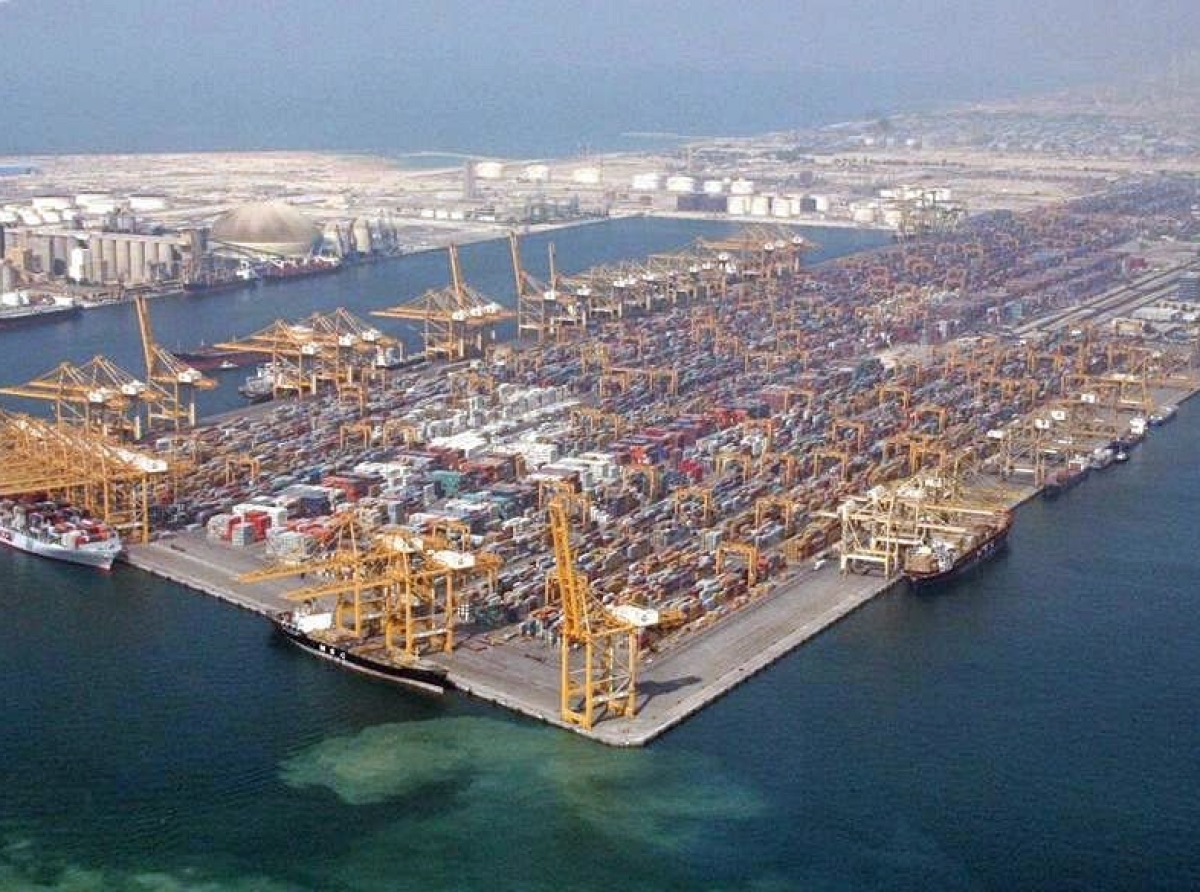Dubai’s Quiet Influence on the Modern Athlete
In the global economy of sport, attention often follows medals and score...
Feb 04, 2026

In the ever-shifting landscape of global trade, Dubai’s DP World stands as a colossus, orchestrating the flow of goods across continents with unmatched scale and ambition. In 2025, the Dubai-based logistics giant solidified its influence with a $1.2 billion investment in African ports, spanning from Algeria to Zambia, reinforcing its role as a linchpin in the world’s supply chains. This strategic expansion, coupled with the continued dominance of its flagship Jebel Ali Port, which handled 15.5 million twenty-foot equivalent units (TEUs) in 2024, underscores Dubai’s ascent as a global trade powerhouse. Yet, as DP World extends its reach, environmental concerns over port-related pollution in the Persian Gulf cast a shadow, urging a reckoning with the ecological costs of such vast operations.
DP World’s investments in Africa reflect a calculated push to harness the continent’s economic potential. From modernizing ports in Senegal and Egypt to expanding the Berbera Port in Somaliland, the company is not merely building infrastructure but reshaping trade corridors. These efforts aim to transform ports like Berbera into major Red Sea hubs, with plans to boost its container capacity from 500,000 to 2 million TEUs annually. Such developments promise to unlock prosperity for landlocked nations like Ethiopia, which holds a 19% stake in Berbera, while positioning DP World as a gatekeeper of Africa’s maritime trade. This expansion aligns with the UAE’s broader geopolitical strategy, leveraging economic influence to secure access to critical markets and resources, including agricultural products vital for food security.
At the heart of DP World’s operations lies Jebel Ali Port, the Middle East’s largest and one of the world’s top ten container ports. In 2024, it processed 15.5 million TEUs, a million more than the previous year, driven by robust demand from Asia and the Indian Subcontinent. The port’s cutting-edge infrastructure, including automated terminals and AI-driven yard management, enables it to handle ultra-large container vessels and diverse cargo, from wind turbines to humanitarian wheat shipments. Jebel Ali’s integration with the Jebel Ali Free Zone (Jafza), home to nearly 10,500 businesses, amplifies its economic impact, contributing 21% to Dubai’s GDP. The port’s record-breaking performance, including a peak of 1.4 million TEUs in July 2024, reflects its pivotal role in navigating global supply chain disruptions, such as the Red Sea crisis, while supporting Dubai’s Economic Agenda D33.
Beyond containers, Dubai’s gold trade, valued at $30 billion annually, further cements the emirate’s status as a global commerce hub. Jebel Ali serves as a critical node for this trade, facilitating the movement of precious metals through its advanced logistics network. The port’s connectivity to Dubai International Airport and its free trade zones ensures seamless re-export, making Dubai a vital link in the global gold market. This economic prowess, however, comes with challenges. The port’s reliance on fossil fuel-powered vessels and heavy machinery has raised environmental concerns in the Persian Gulf, where marine pollution and carbon emissions threaten fragile ecosystems.
Environmentalists and international regulators, including those enforcing MARPOL Annex V and VI, are pressing for greener practices at Persian Gulf ports. Jebel Ali has taken steps toward sustainability, implementing renewable energy and advanced waste management systems, but critics argue that more aggressive measures are needed. The International Maritime Organization’s classification of the Strait of Hormuz as a High Risk Area, combined with rising sea levels and storm frequency due to climate change, complicates operations and underscores the urgency of adopting cleaner technologies. DP World’s issuance of a $100 million blue bond in 2024 and its validation by the Science Based Targets initiative signal progress, but the scale of its operations demands bolder action to mitigate pollution and protect the Gulf’s marine environment.
DP World’s global expansion, from Africa’s ports to Jebel Ali’s bustling terminals, reflects a vision of trade as a catalyst for economic growth. Yet, as the company drives Dubai’s $20 billion trade network forward, it must navigate the delicate balance between ambition and responsibility. The calls for greener practices are not merely a challenge but an opportunity to lead by example, ensuring that the arteries of global commerce remain open without choking the environment they depend on. As Dubai continues to shape the future of trade, its ability to harmonize economic dominance with ecological stewardship will define its legacy on the world stage.
Photo credits: Wikipedia. Jebel Ali Port.
Disclosure: Dubai Voice enhances the editing process with the help of carefully selected AI tools. These tools provide valuable support without taking over the editing process completely, ensuring that the final product is the result of human creativity and expertise augmented by the benefits of enhanced technology. This article is protected under the copyright of Dubai Voice. Unauthorized reprinting, republishing, or rewriting of this content is strictly prohibited without explicit permission from Dubai Voice. Quotations from this material are permissible provided that a direct link to the full article on Dubai Voice is included.